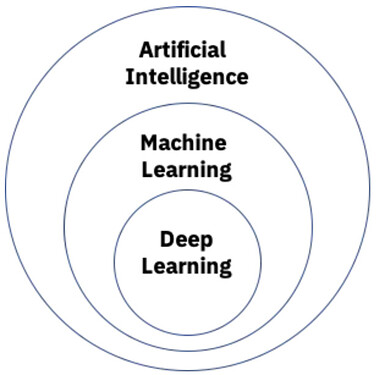Everyone is now talking about Artificial intelligence (AI). Here we want to investigate and answer the following questions:
- What is AI?
- What is the hype about AI?
- Is there real progress in AI?
- What is singularity?
What is AI?
AI is a field of study in computer science to build machines that can think and mimic like the human mind. Back in 1950, the father of computer science Alan Turing pondered over the question Can computers think?. To answer this question he has developed a test called the Turing Test, where a human interrogator would try to distinguish between a computer and human text response. As per Turing, AI can be defined. as a computer/system that can think/act like human.
AI can be categorized into two specific types:
- Narrow AI
- General AI
Systems that are trained to perform specific tasks using tasks specific data are defined under narrow AI. Recent progress in AI is all about the progress in narrow AI. These can also be termed data-dependent algorithms. Amazon Alexa, Google Assistant, Apple Siri, etc are all examples of data-dependent algorithms.
General AI is a field to study to develop systems that are equivalent to humans intelligence. It will have the abilities to think, learn and plan like humans and even surpass humans. To this date, it only exists in theory and no progress has been made.
What is the hype about AI
Everything that we understand as AI today is narrow AI, that can not think or learn on its own and its ability to make a decision is very limited to the data it’s trained on.
These data-dependent algorithms are entirely dependent on the data it is trained on; if there is bias in the training data, then the AI will also be biased.
If there are mistakes in the training data, AI will also make mistakes.
Narrow AI can not generalize to a domain it is not trained on, this phenomenon is known as the distribution-shift problem.
Is there real progress in AI?
Recent progress in narrow AI is due to the progress in sub-field deep learning.
Thanks to Moore’s Law, now we have huge compute power availability. We can build a super-computer on the cloud and run our programs as did by OpenAI to train their GPT3 model.
Progress in deep learning is driven by the availability of cheap compute and large amounts of data on the internet.
Deep learning algorithms are data-hungry and compute a hungry, a large number of training samples and compute power are required to train any deep learning model.
In the last few years, deep learning has achieved enormous feats in terms of achieving near-human-level results on tasks such as image classification, translations, recommendations, etc. All these were possible due to the vast amount of data and huge compute power.
What is Singularity?
Singularity is a hypothetical point in time at which technological growth becomes uncontrollable and irreversible resulting in unforeseeable changes to human civilization. Singularity is the next stage of General AI when the machine starts thinking to develop superior intelligence.
